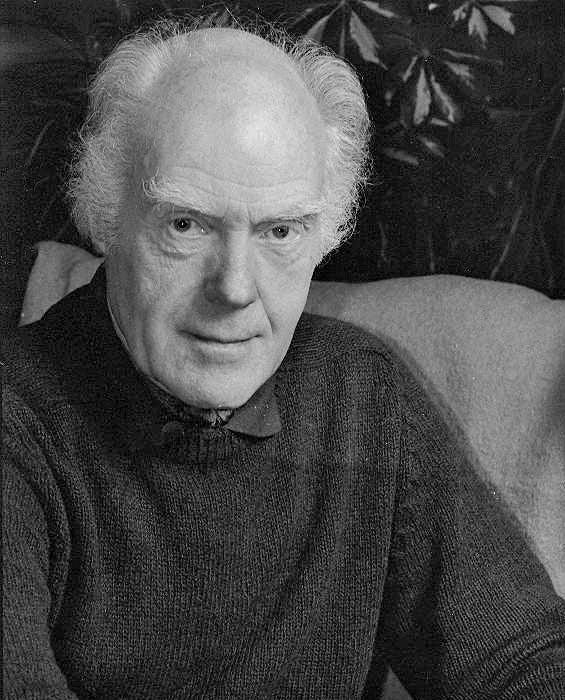Bryan Fairfax: Pioneering conductor who gave the first English performances of works by Mahler and Bruckner

“Why don’t you do The Gothic?”, said the composer Robert Simpson to the violinist and conductor Bryan Fairfax, who had asked him to suggest large-scale music that he might do with his recently-formed Wind Music Society.
Simpson wasn’t being serious, but Fairfax borrowed the two-volume score of Havergal Brian’s mighty Gothic Symphony and in 1961 gave the first performance, 34 years after it was written, with 500 performers (four choirs, an orchestra of 148 players and two brass bands from Kneller Hall) in the Central Hall Westminster. Its start was delayed owing to crowds demanding tickets, and the bass soloist was “a young baritone of remarkable potentiality”, John Shirley-Quirk.
Many thought the venture foolhardy, and Robert Matthew-Walker suggested that “a largely amateur performance would very likely militate against the symphony”, but after hearing it, in an audience that included Malcolm Arnold, he admitted that “Bryan Fairfax had excelled himself and brought off an extraordinary triumph”. Brian made it clear that, for all its shortcomings, without “the fearless Fairfax”, the fully professional performance conducted by Sir Adrian Boult at the Royal Albert Hall in 1966 would never have taken place.
While discussing The Gothic, Fairfax asked Brian whether any of his symphonies were scored for forces small enough to perform with his largely amateur Polyphonia Orchestra. None was, but after asking about the make-up of the orchestra, unknown to the conductor he composed his Symphony No 18 and dedicated it to Fairfax, who gave the premiere in 1962 at St Pancras Town Hall and the first professional performance, a BBC studio recording broadcast, in June 1975.
Bryan Fairfax was born in Melbourne in 1925. His father was the baritone Lancelot Fairfax. Soon after Bryan’s birth the family came to Britain, living in St John’s Wood until the outbreak of war, when they returned to Australia, but when the war was over, after studying at the Sydney Conservatoire, Bryan – with his younger sister, the future actress Diana Fairfax – was in London again, at the Guildhall School of Music studying violin, with Diana at Rada.
In 1947 he briefly returned to Australia with the Boyd Neel Orchestra, undertaking its first postwar overseas tour; he was a répétiteur with the Carl Rosa Opera Company and from 1954-6 played in the Hallé. From 1956-77 he studied conducting at the Vienna Academy and on returning formed the Wind Music Society, and in 1961 the Polyphonia Orchestra, to perform new or rarely heard music.
Space precludes a full listing of Fairfax’s achievements. He conducted the inaugural concert of the London Sinfonietta at the Wigmore Hall in June 1956, playing Hindemith’s Kammermusik No 2 and Henk Badings’ Octet. In February 1961, before tackling the Gothic, he gave the first public performance in England of Mahler’s Third Symphony at the St Pancras Festival, an artistic triumph: Felix Aprahamian wrote in The Sunday Times of “a receptive atmosphere of a kind that was rare.”
Among his other pioneering British concerts were the first public performance of Carl Nielsen’s Sinfonia espansiva, the first performance of Shostakovich’s Third Symphony, Stravinsky’s Piano Concerto, Iain Hamilton’s Sinfonia for Two Orchestras and revivals of Liszt’s Dante Symphony and Robert Simpson’s Second (all in 1962). In 1963 came the first concert performance of Bruckner’s Symphony in D minor (Die Nullte), Mahler’s Seventh Symphony and the English premiere of Franz Schmidt’s Symphony No 4, and a concert performance at the Royal Festival Hall of Britten’s Gloriana, to mark the composer’s 50th birthday.
The year 1964 began, astonishingly, with the first British performance of Rachmaninov’s First Symphony and, in April Fairfax conducted a four-week Bruckner Festival at which Robert Matthew-Walker experienced “the most penetrating account of Bruckner’s Second Symphony I have ever heard, and a deeply impressive slow movement in a fine reading of Bruckner’s Symphony No 8.”
Later came Constant Lambert’s Piano Concerto, with Richard Rodney Bennett as soloist (1967) and Cyril Scott’s Piano Concerto in C, with Moura Lympany, for the composer’s 90th birthday (1969). In 1971 Fairfax and the Polyphonia premiered Scott’s Hourglass Suite. In 1972 he conducted The Olympians by Sir Arthur Bliss in the presence of Edward Heath and the Queen Mother. In 1974 and 1976 there were the then rarely heard Caractacus and King Olaf by Elgar, and in 1978 Elgar’s The Black Knight with Sullivan’s Symphony in E, all at the Royal Festival Hall.
Fairfax later returned to the violin and viola, and ran a conducting course at London’s City Literary Institute, which is where I first met him in 1980. The most memorable thing he said to us was that, “what feels good doesn’t necessarily look good or convey anything useful to the performers”. His own style, very much in the Boult tradition, was economical, beautifully expressive, and effective.
Bryan Lancelot Beresford Fairfax, conductor, violinist and viola player: born St Kilda, Australia 8 February 1925; married 1968 Olivia Dennis (divorced); died Barnet 11 January 2014.
Join our commenting forum
Join thought-provoking conversations, follow other Independent readers and see their replies
Comments